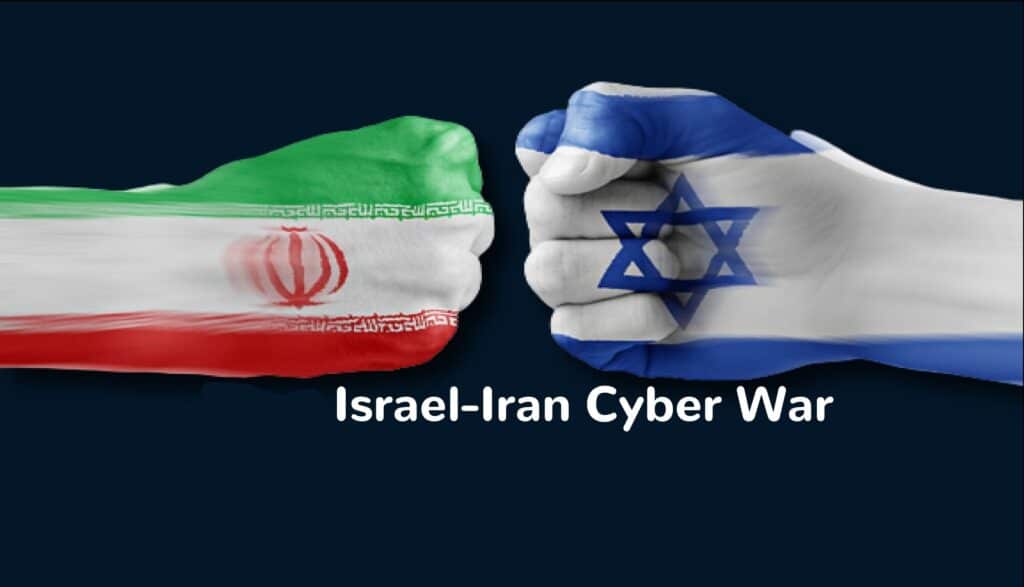As of June 2025, while military clashes between Israel and Iran capture international attention, another war, quieter yet just as disruptive, is unfolding behind computer screens. This digital conflict does not create physical destruction, but it affects economies, essential systems, and everyday life in very noticeable ways.
The Digital Battlefield
The dynamics between Israel and Iran have shifted noticeably toward cyber operations. Following a spate of Israeli airstrikes on Iranian nuclear sites, Tehran’s cyber units responded swiftly. Their targets? Not just military networks, but financial institutions, municipal systems, and essential services. These were not random cyber pranks; They made specific efforts to create instability, undermine public trust, and sow digital chaos.
Israel, renowned for its cutting-edge cybersecurity ecosystem, did not stay idle. Pro-Israeli hacking groups, some likely backed by the state, started their own digital counterstrikes. Sensitive Iranian data was leaked, government operations were disrupted, and a clear message was sent: cyber retaliation would be met in kind, and then some.
Cyber-Dome: A Digital Version of Iron Dome?
Faced with growing cyber aggression, Israel introduced its “Cyber-Dome“, a bold initiative modeled after the Iron Dome defense system but reimagined for the cyber age. Built around AI-driven threat detection, the Cyber-Dome aims to:
- Detect and neutralize attacks in real-time
- Shield national infrastructure like power, water, and transport systems
- Push back against disinformation campaigns targeting civilian morale
Early assessments hint at some success; several Iranian attacks have reportedly been blocked. Still, cybersecurity experts warn that no wall, digital or otherwise, is ever completely impervious. Hackers evolve, and so must defenses.
Iran’s Digital Arsenal
Despite economic sanctions and limited access to the latest tech, Iran has carved out an impressively capable cyber warfare program. Units linked to the IRGC, including APT33, APT34, and the so-called Charming Kitten, have grown increasingly sophisticated. Their playbook now includes:
- Exploiting third-party vendors via supply chain attacks
- Deploying AI-powered phishing using deepfake videos and audio
- Launching ransomware and wiper malware designed to cause long-term damage
Importantly, their focus is not confined to Israel. U.S. agencies, European firms, and Gulf state assets have also been in the crosshairs, signaling Tehran’s broader strategic ambitions.
Also read this
How the Israel-Iran War Conflict is Shaking the Global Economy
Collateral Damage
What makes cyber warfare particularly insidious is its reach beyond the battlefield. Civilians involved, often without knowing it, face the worst consequences. Recently, many hospitals have shut down, banking systems have frozen, and emergency alerts have been sent over to create panic.
The rise of weaponized disinformation is also concerning. Through deepfake news reports, bot-driven social media campaigns, and changed stories, these actors do not just attack systems; they target minds. The result? Eroding public confidence in governments, media, and each other.
The World Should Care
This is not just a regional squabble; it is a preview of what modern conflict looks like, and the effects extend widely.:
- Market Disruption: Cyber hits on energy or finance sectors spark global volatility.
- Corporate Anxiety: Companies around the world are working hard to improve their digital security.
- Geopolitical Copycats: Russia, China, and North Korea pay attention, adjust, and get ready.
- Risk of Escalation: A severe cyber breach could easily provoke military retaliation.
Conclusion
What we are witnessing between Israel and Iran is not just a sideshow; it is a transformation of how wars are fought. Code has become as consequential as conventional weapons. And as these two adversaries continue their tug of war online, the world watches nervously, wondering how long before a digital spark sets off something far more destructive.
Whether we realize it or not, cyber warfare has already crossed borders. In a hyper-connected world, the silent war between Israel and Iran might just be a loud warning for the rest of us.



